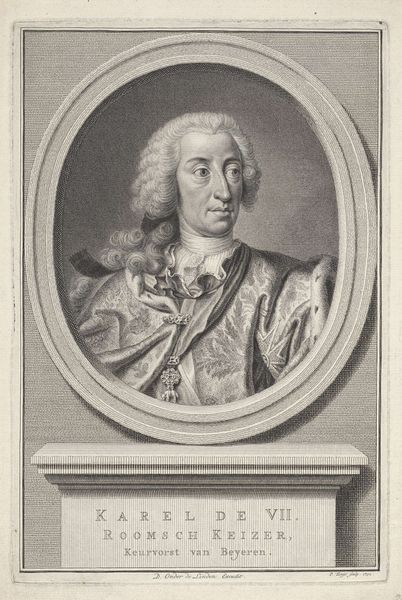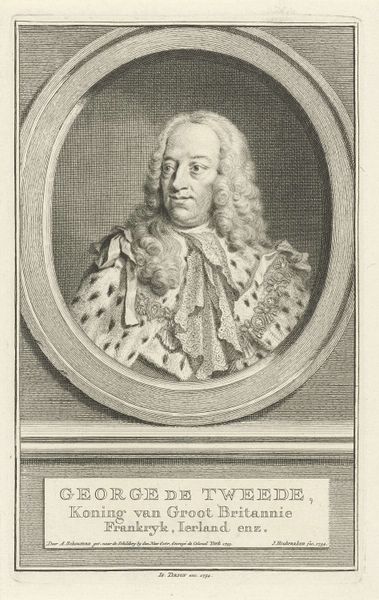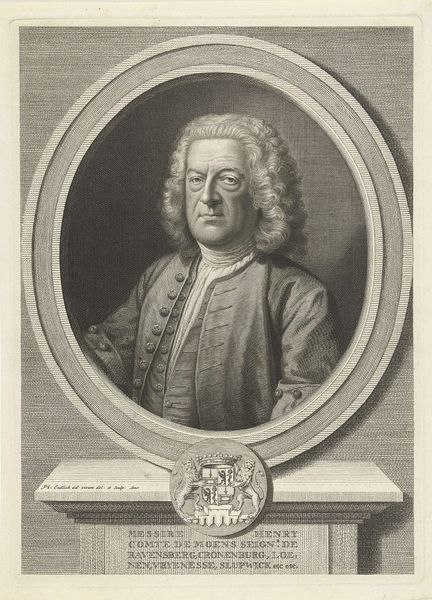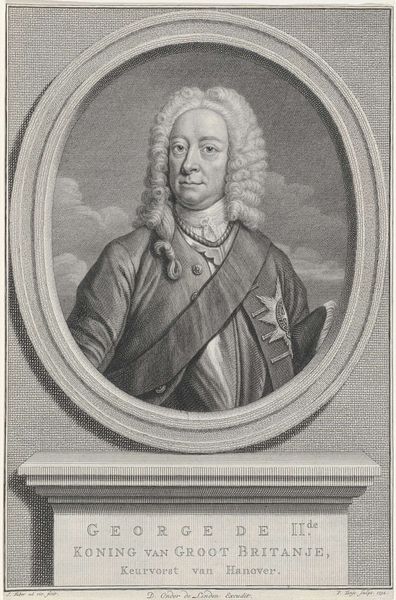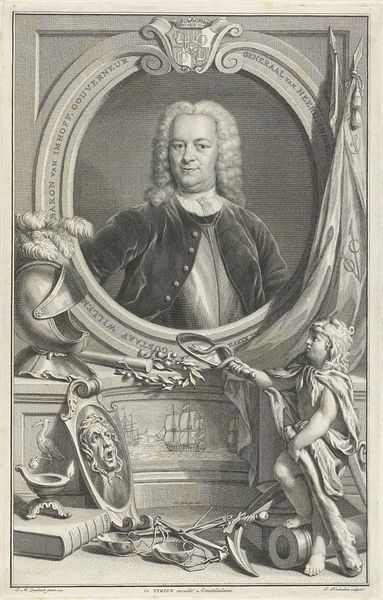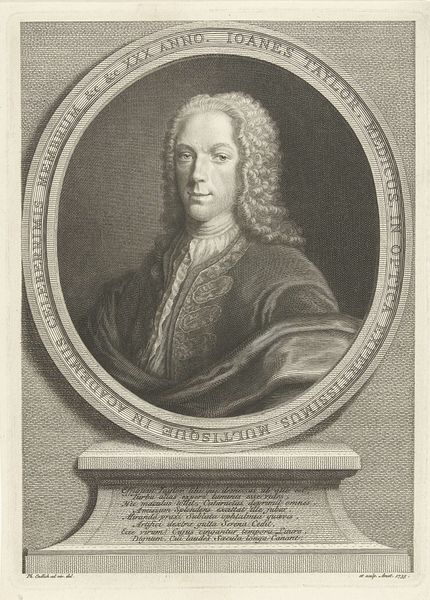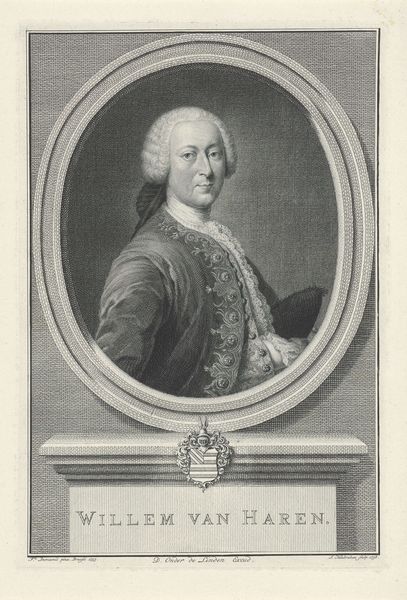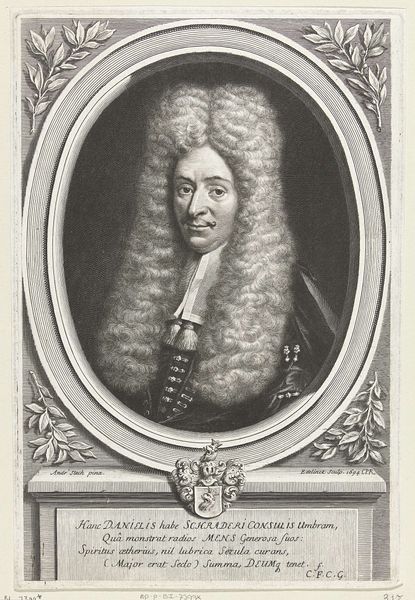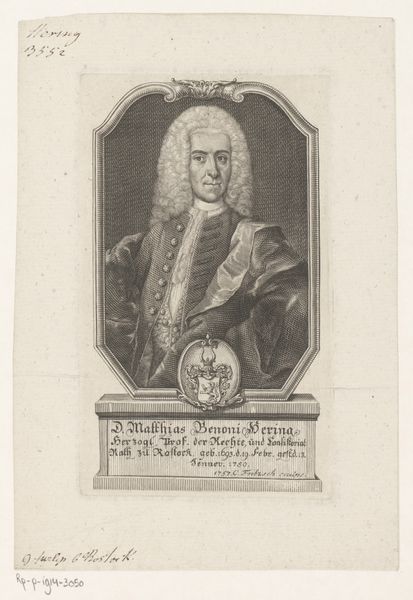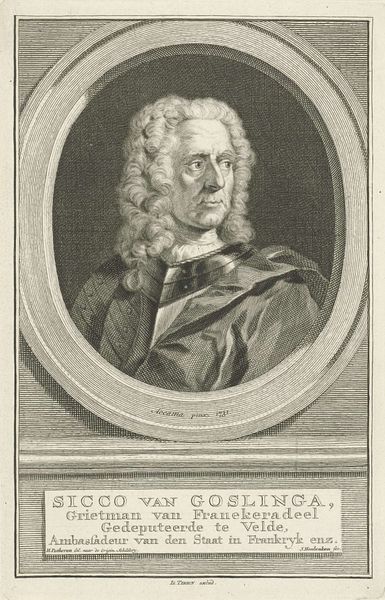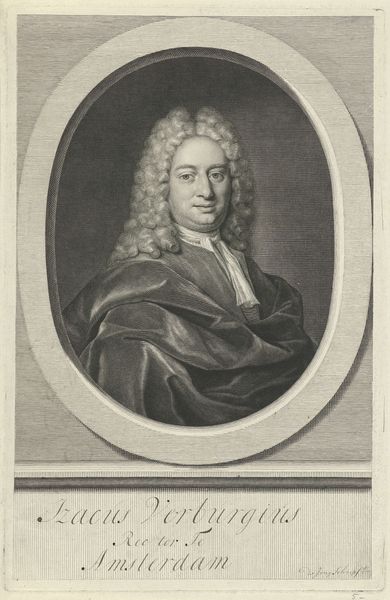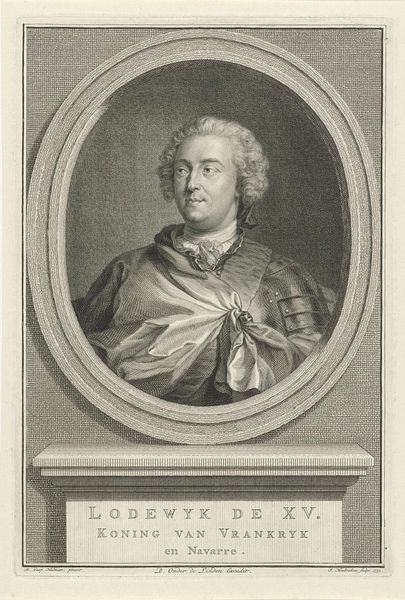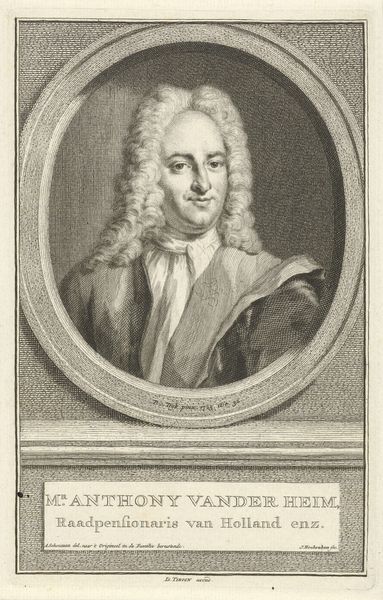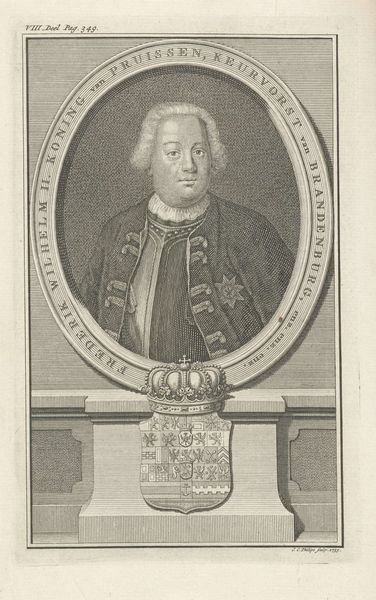
#
wedding photograph
#
photo restoration
#
old engraving style
#
historical photography
#
portrait reference
#
unrealistic statue
#
old-timey
#
framed image
#
19th century
#
statue
Dimensions: height 320 mm, width 230 mm
Copyright: Rijks Museum: Open Domain
Curator: Here we have "Portret van John Philips," made sometime between 1731 and 1748. It now resides in the Rijksmuseum. Editor: My initial response is…reserved. There’s a formality bordering on austerity in this image, despite the elaborate wig and the ornamental frame. Curator: It's an engraving, exhibiting remarkable precision in its lines and gradations of tone. Note how the artist employed hatching and cross-hatching to construct volume and texture. Observe, too, the way the light subtly defines the contours of his face and wig. Editor: It's the composition that intrigues me. Below Philips’ image, prominently displayed, is his seal; the text describes his position as governor of Saint Martin, raising complex historical questions about the man and his status. It's difficult to divorce this elegant portrait from the brutal realities of colonialism and enslavement inherent in his governorship. Curator: Yes, the portrait undoubtedly operates within a framework of representation. However, observe how the oval frame isolates and elevates the sitter, almost as if abstracting him from his specific social context. We’re prompted to consider him almost archetypally, examining qualities of bearing, class, and self-presentation independent from strict historicist narratives. Editor: But can we truly separate those concepts? This isn't merely a depiction of a man; it’s a depiction of power, deeply intertwined with social and political realities of his time. To consider this artwork without addressing those dynamics feels...incomplete. Curator: And perhaps that very tension between surface and depth, image and historical weight, contributes to the enduring resonance of a work such as this. It challenges us to see beyond simple representations. Editor: I agree; its impact resides not merely in technique but its invitation to grapple with an era, a personality, and a constellation of implications—colonial power, wealth, status— all rendered with such…reserved… elegance.
Comments
No comments
Be the first to comment and join the conversation on the ultimate creative platform.
